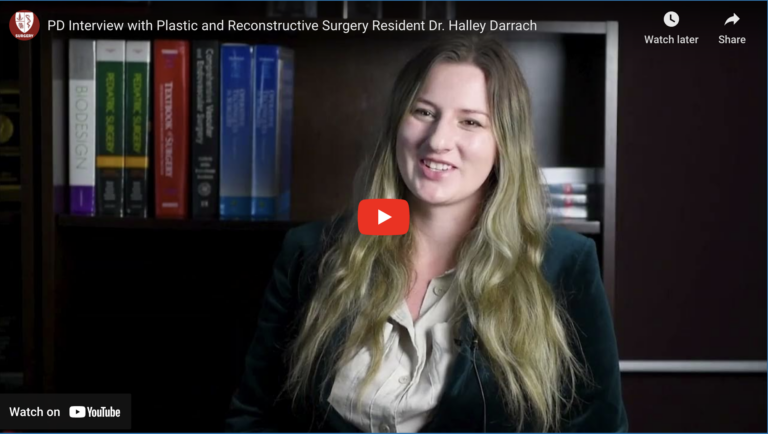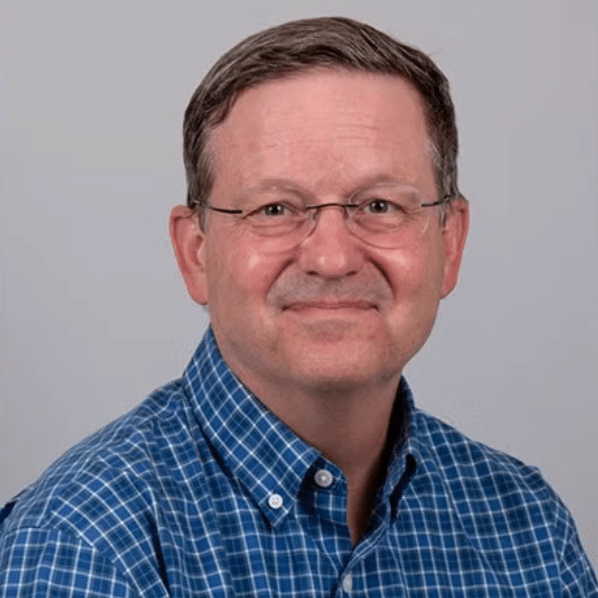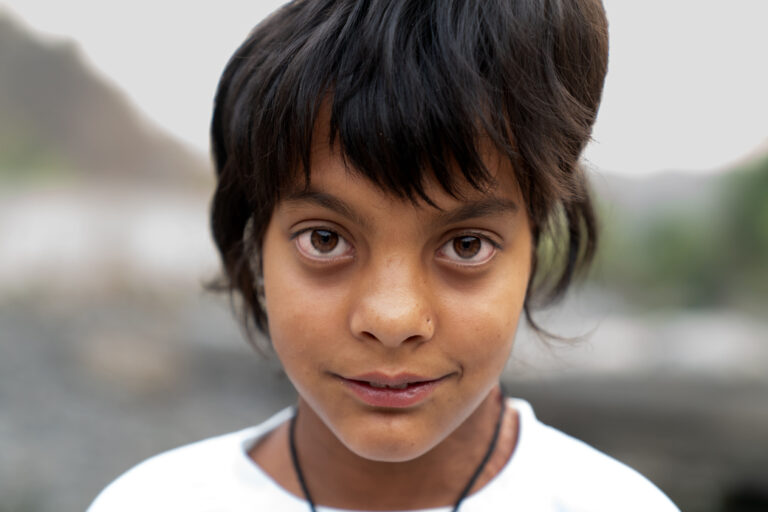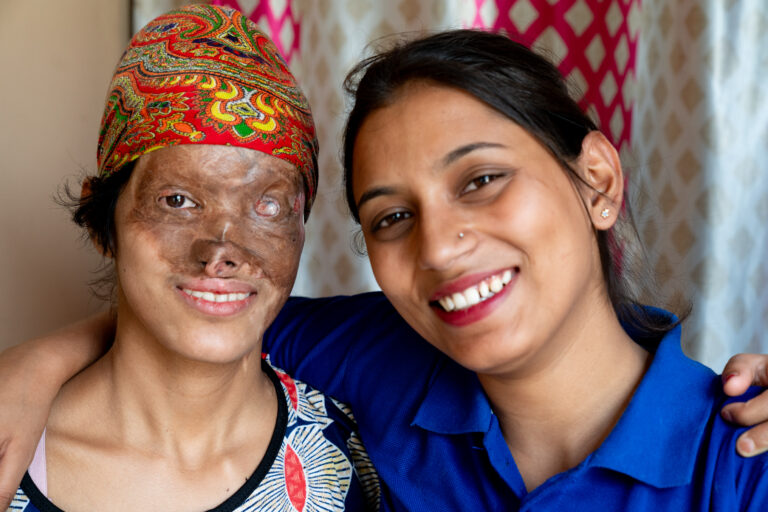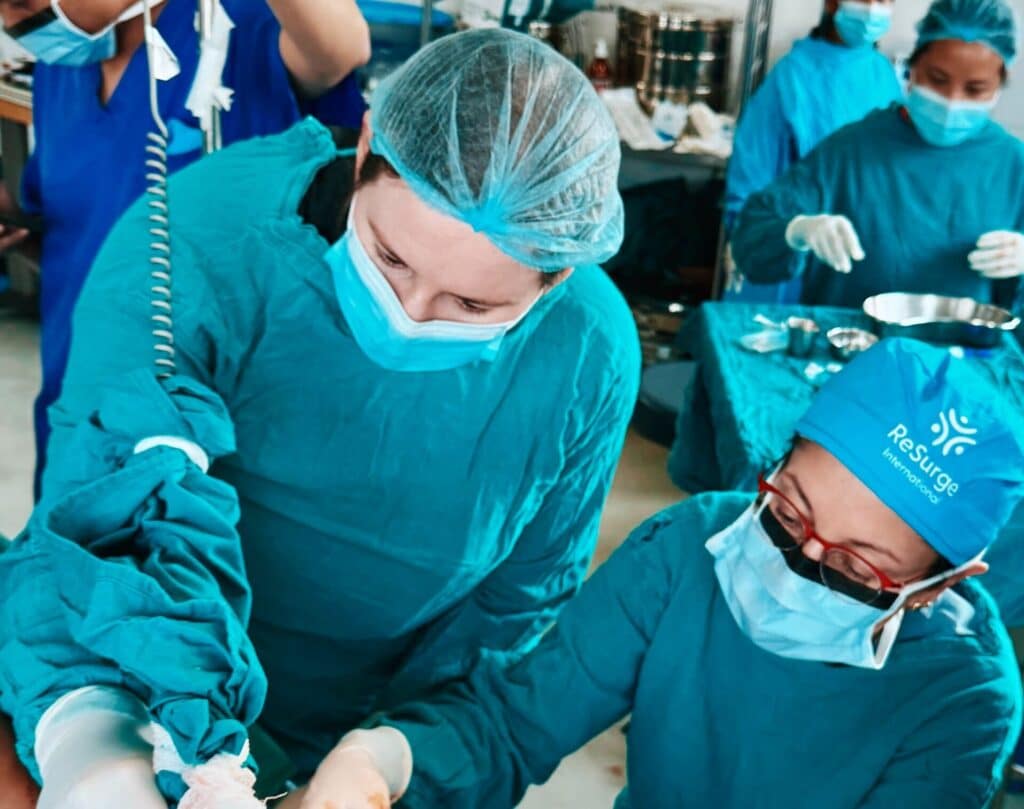
“My time at ReSurge has further underscored the far-reaching benefits of reconstructive surgery on the whole person – mind and body – but also on their community.”
– Halley Darrach, 2023 ReSurge Laub Fellow
The Donald R. Laub Fellowship program, named after our late founder Don Laub, allows for a fourth-year resident in plastic and reconstructive surgery to work with ReSurge for a year.
We had the honor of interviewing 2023 ReSurge Laub Fellow — Halley Darrach. Halley shared her experiences navigating Surgical Team Training Trips, building global-to-local partnerships, and adapting to dynamic local scenarios. She discussed professional and personal insights on diversity, accessibility, and what it looks like to be a woman surgeon and global educator, expanding access to reconstructive surgical care.
What did you work on as a ReSurge Laub Fellow?
This past year, I was incredibly fortunate to be able to work with numerous members of the ReSurge team. Most of my work was with the programs team. It included organizing Surgical Team Training Trips, analyzing outcomes from training practices, and facilitating global partnerships, including the PWRS (Pioneering Women in Reconstructive Surgery) program.
What aspect of your work at ReSurge did you enjoy most?
I am very grateful to have gone on Surgical Team Training Trips. I learned a lot from our local Surgical Partners and Medical Volunteers. Each trip would start as a cast of strangers but would conclude as a cohesive team. In doing so, my network of mentors and role models has grown nationally and globally.
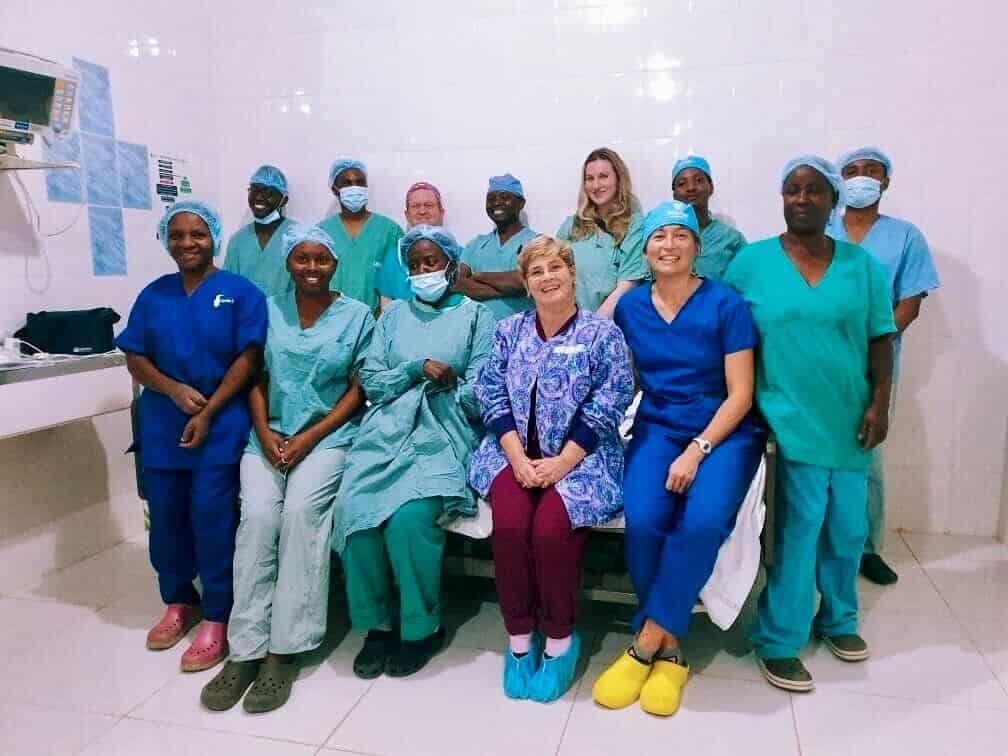
What were some of the challenges and opportunities you faced?
When operating in an unfamiliar locale, you must expect the unexpected: equipment failures, power outages, and unavailable materials. Our Medical Volunteers always viewed this as an opportunity to learn from the local team on their workarounds. This was a powerful experience for me as a trainee at Stanford – one of the most resource-rich institutions in the world – that there are many ways to achieve safe, stable surgical results while using significantly fewer materials in the operating room.
In your words, “A reconstructive surgeon’s work is carried on for life and can profoundly impact form, function, and psyche“. In what ways has this theme prevailed throughout your time and experience at ReSurge?
My time at ReSurge has further underscored the far-reaching benefits of reconstructive surgery on the whole person – mind and body – and their community. For one patient, a five-hour-long hand surgery resulted in a complete shift in demeanor. At the preoperative evaluation (an examination focusing on risk factors that should be accounted for during surgery), the patient was withdrawn and reported being housebound and dependent on family, as their hand injury made it impossible for them to ride their motorbike, which is the primary means of transportation in their region. Afterward, they were energized by the prospect of being able to travel independently. Two months later, during our post-operative conference, hearing that they achieved this dream was incredible.
What have been some of your experiences as a woman fourth-year resident in plastic and reconstructive surgery?
In the past few years, the gender distribution of incoming American plastic residents has reached parity. Most residents in my training program have been female, so I feel fortunate to have started training with this strong network of co-residents and role models. However, there is still a long way to go nationally – especially concerning racial and socioeconomic diversity. There is even more that needs to happen globally.
What has it been like to witness both challenges and opportunities faced by women surgeons and patients globally?
I enjoyed working with the scholars and mentors in the Pioneering Women in Reconstructive Surgery (PWRS) program throughout the year. Across the globe, we all faced our unique hurdles, but still, we experienced many unifying challenges as women in medicine. No matter the nation, female surgical trainees face a catch twenty-two. Those with partners or children face questions about whether they are giving “their all” to their training while simultaneously being judged on whether they are embodying what it means to be a “good mother” or a “good wife.” The trainees are frequently asked “when” they are going to get pregnant, and if they are aware their “biological clock is ticking.” I have seldom witnessed this for male trainees.
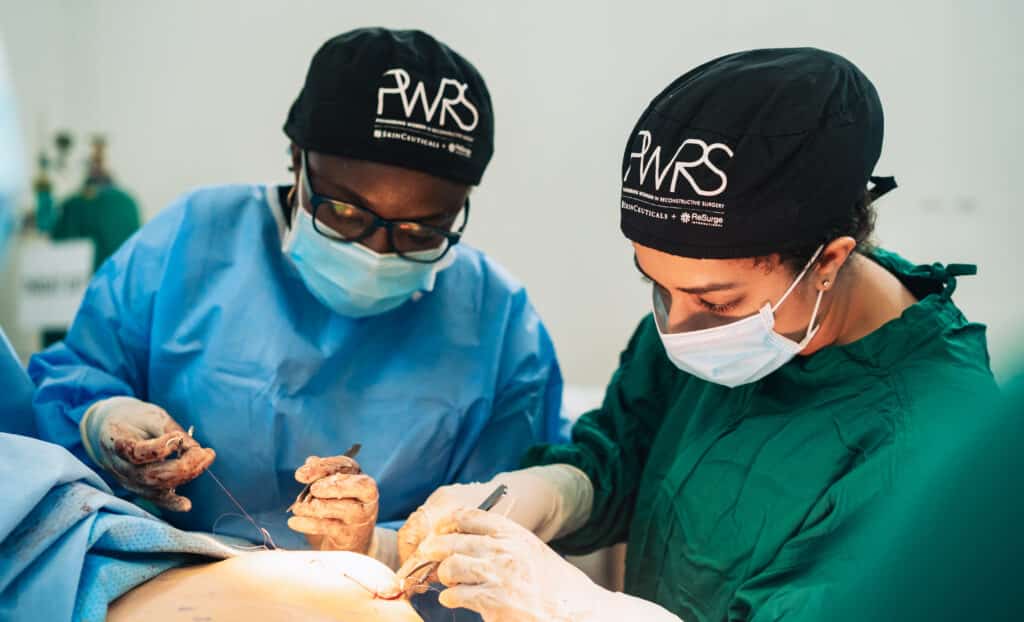
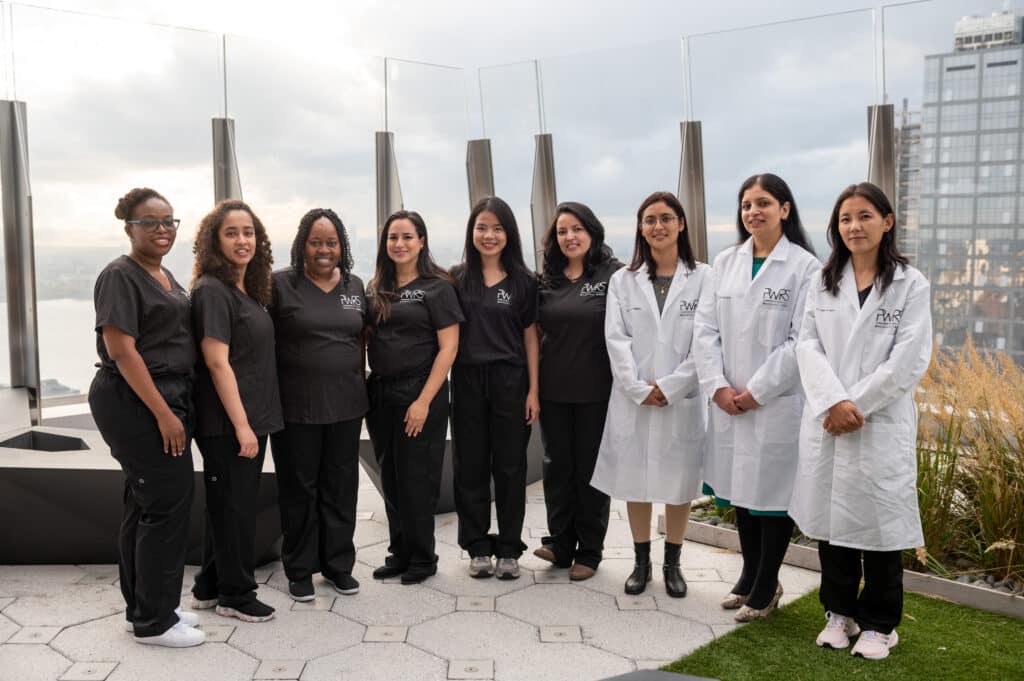
These pointed questions are especially prevalent in surgical training, but these struggles affect women of all walks of life. Just because a female patient reports they are not employed does not mean they are not expected to work throughout their postoperative recovery; globally, most of the world’s unpaid labor – cooking, cleaning, childcare – falls on the shoulders of women.
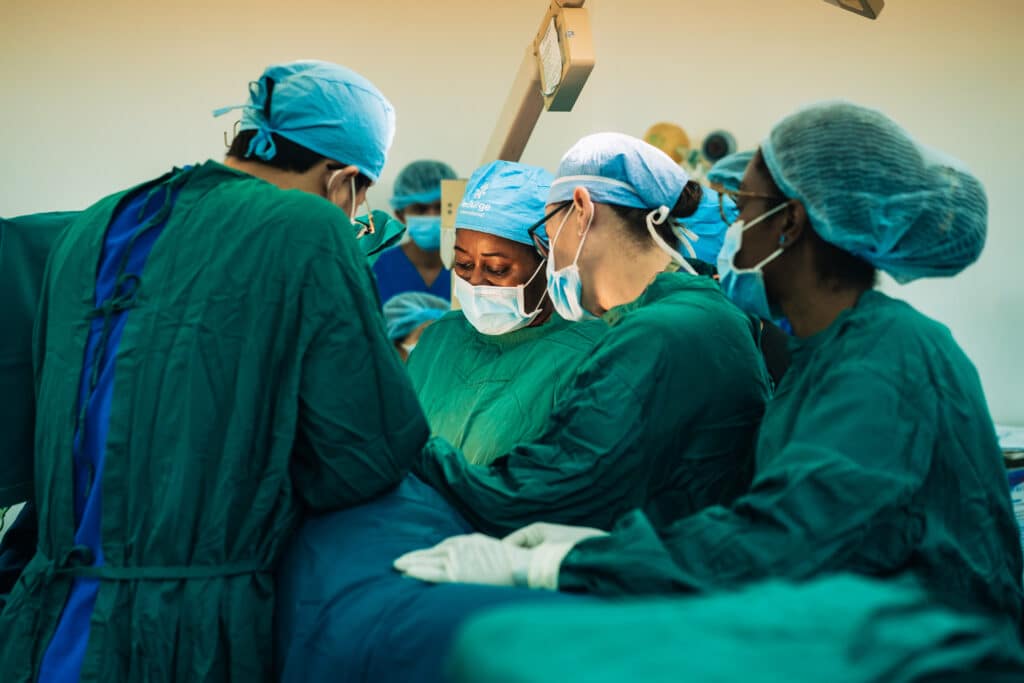
What have been some transformative moments or experiences in the operating room?
Transformative moments include operating with Dr. Seif Nuru, our incredible Surgical Partner from Saint Gaspar’s Hospital in Itigi, Tanzania, and Dr. Eric Mooney, a phenomenal plastic surgeon from Upstate New York. Power outages in Itigi are common and usually resolve within several minutes. When the power went out for an extended period, all the operating room staff came in and illuminated the way with their cell phone flashlights so we could keep operating. If we were in the United States, I imagine everything would have come to a panicked standstill, but in Itigi it was just another day. We finished the case without delay or complication, thanks to the all-hands-on-deck mentality of our team.
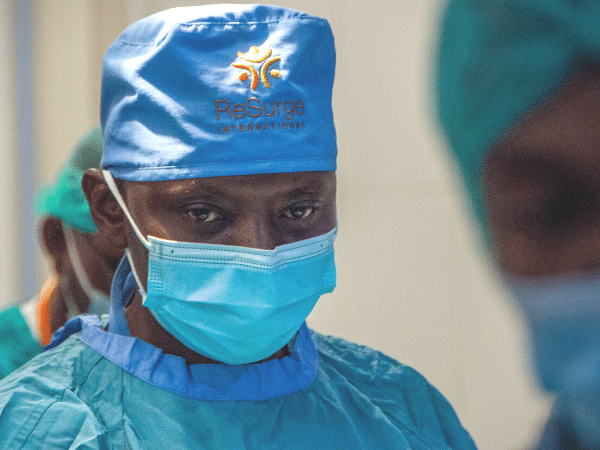
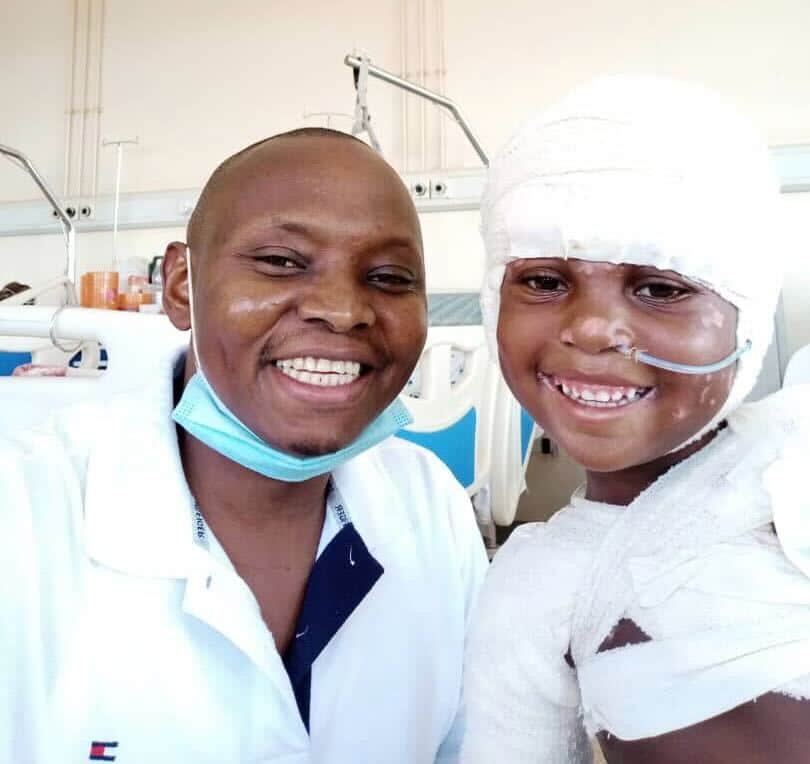
Describe your experience going on a Surgical Team Training Trip with ReSurge.
Each Surgical Team Training Trip had a specific training focus. In Tanzania, we came to teach and collaborate on general reconstruction. However, we found a lot of pediatric burn injuries – particularly of the hand – so we tailored many of our lectures and sessions to address such. In Ethiopia, I helped lead a microsurgery training session so they could start their microsurgery training program and followed our participants for six months to gauge their progress.
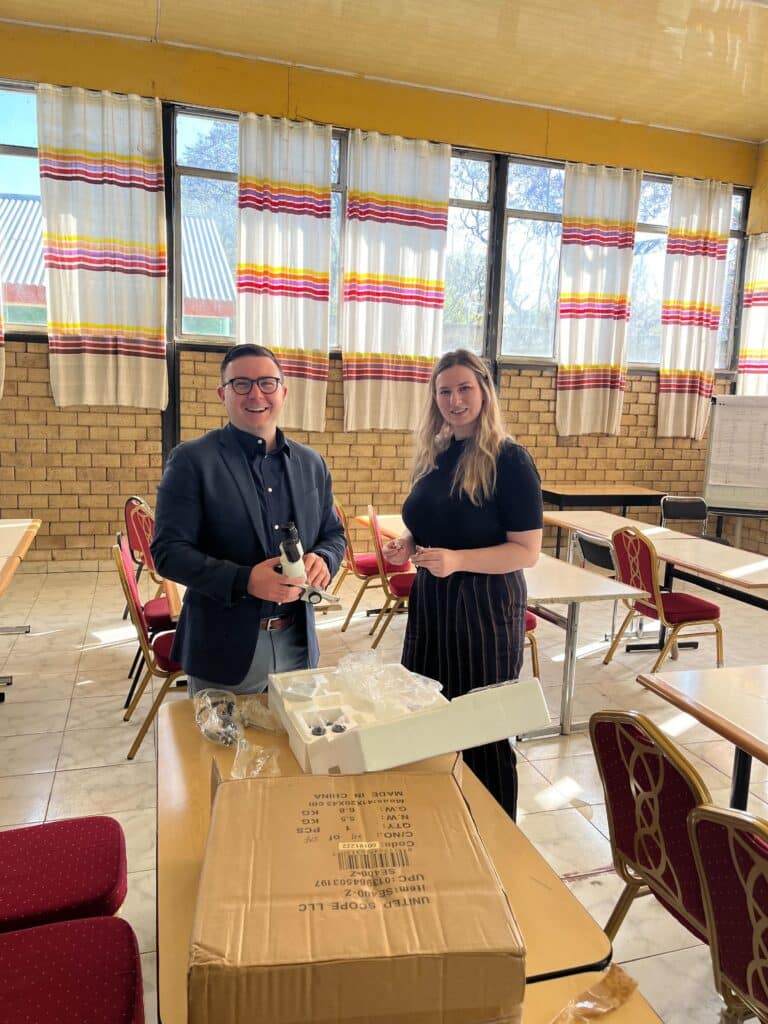
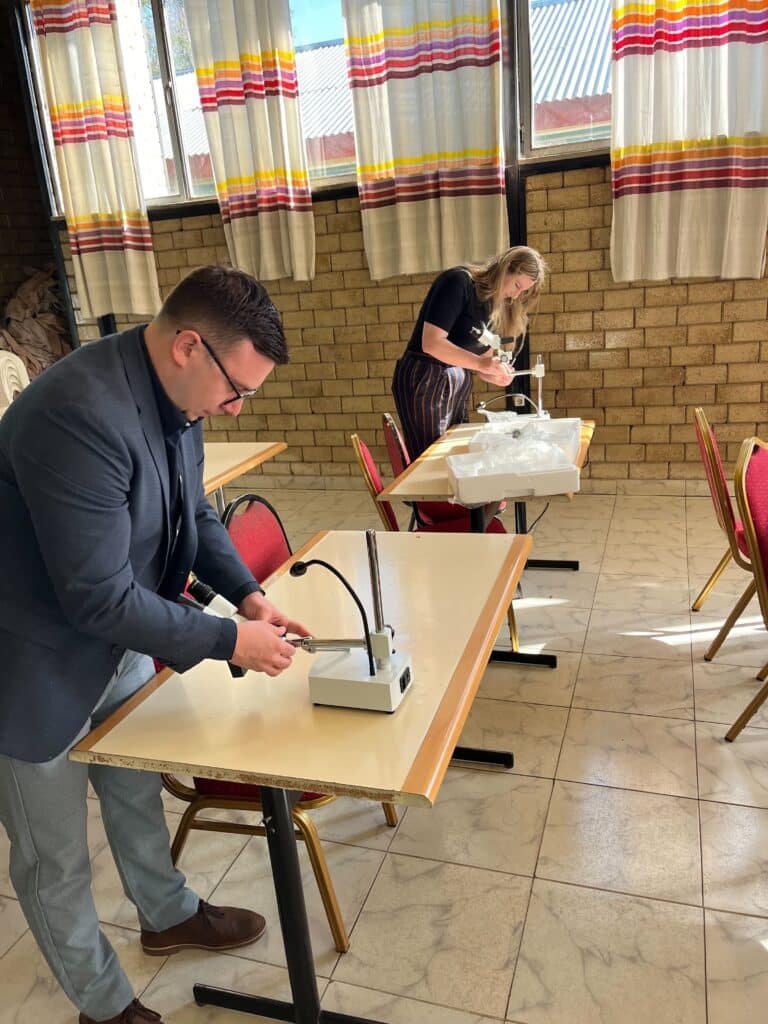
In Nepal, we performed complex microsurgical cases to help further the skillset of their microsurgeons. Across all of these travels, flexibility and open-mindedness are paramount, as the needs of the local partners should dictate the goals for the trip. Sometimes the needs are not known explicitly until you arrive, simply based on the types of issues patients present to the preoperative clinic with.
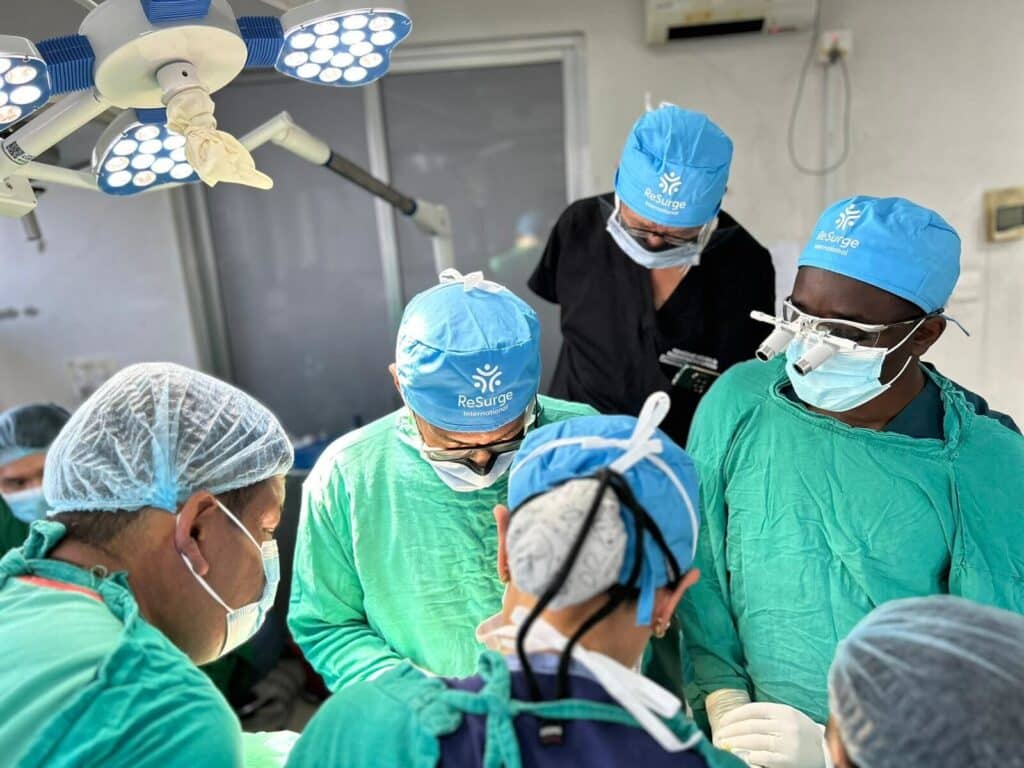
What are some initiatives at ReSurge that you are excited about?
I am incredibly excited to witness ReSurge’s growth in the coming years, especially concerning microsurgery training. The work I helped initiate in Ethiopia has been progressing well. ALERT Hospital has invited us to go on a complex hand and nerve reconstruction trip in the spring and will facilitate their first microsurgery trip in the autumn. We will offer this same training workshop at the 2024 COSECSA (The College of Surgeons of East, Central, and Southern Africa) Examinations in December to share with Zimbabwean trainees. I am eager to see the next Laub Fellow, the outstanding Dr. Meewon Park, lead this next stage in outreach.
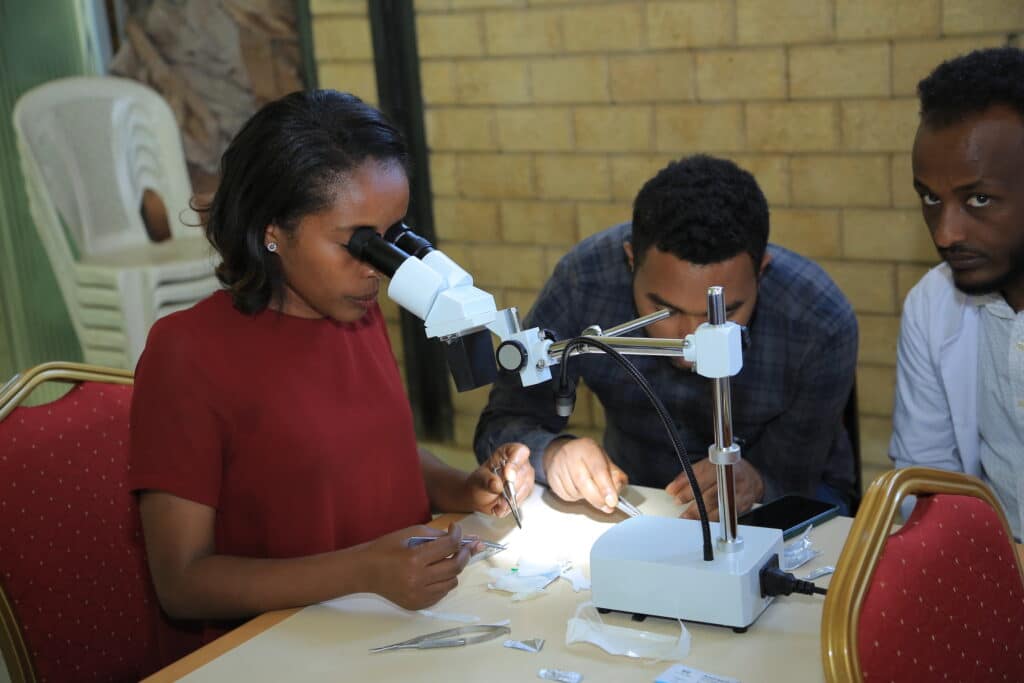
What are some challenges and opportunities in global surgery or global health that are top of mind for you?
Accessibility poses tremendous challenges in global surgery. Several nonprofits are doing phenomenal work globally. However, not all surgical programs have access to the resources they need. Throughout the year, I worked with the United Nations SurgHub initiative to make our ReSurge lectures available to the public –– so anyone worldwide can benefit.
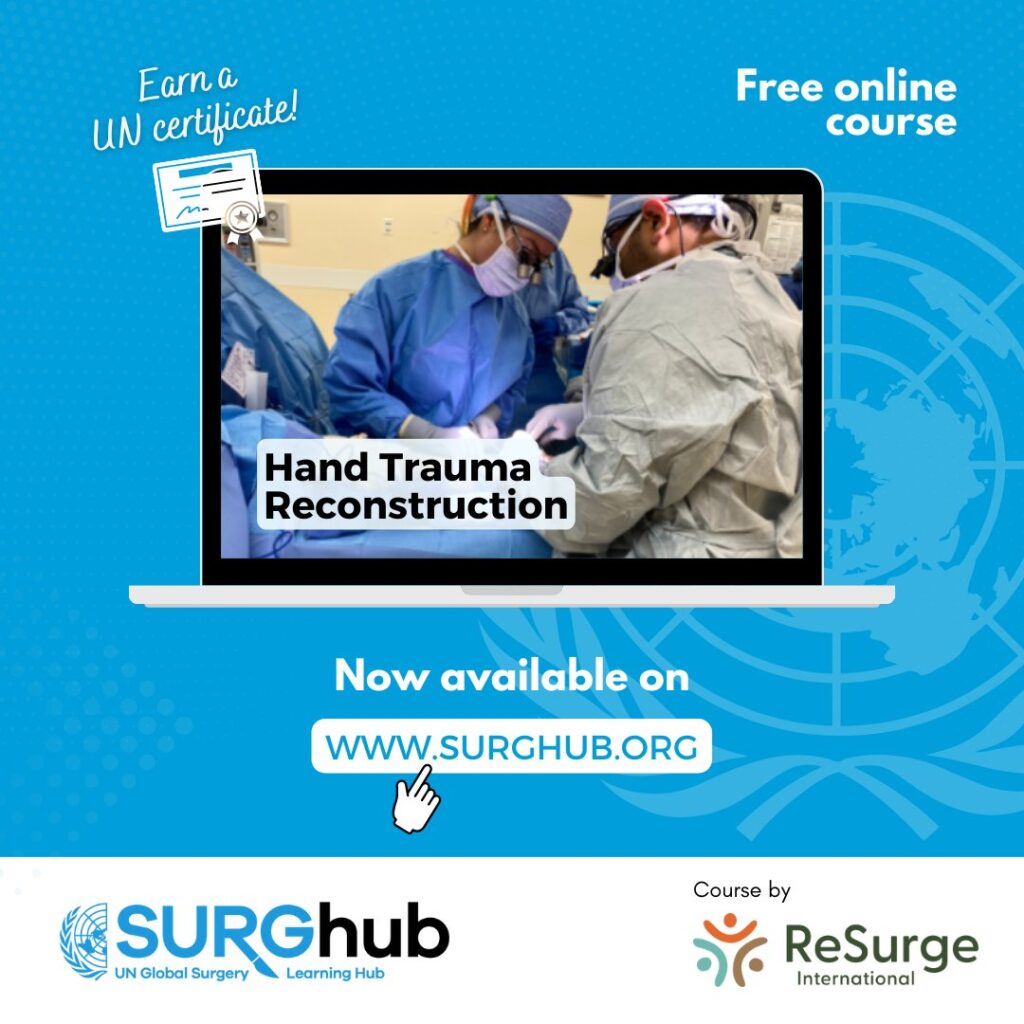
What advice or tips would you give to someone undertaking a similar opportunity?
The Laub Fellowship is an incomparable opportunity. I wish I could have more time with the team! I encourage fellows to be flexible and open-minded, as even the best-laid plans will change. The nature of international work means you are always subject to the geopolitically unexpected. I found it challenging to schedule trips around my call requirement, as these dates would be hard to shift, so I’d recommend future Fellows to try and cluster their surgical calls during the months without trips.
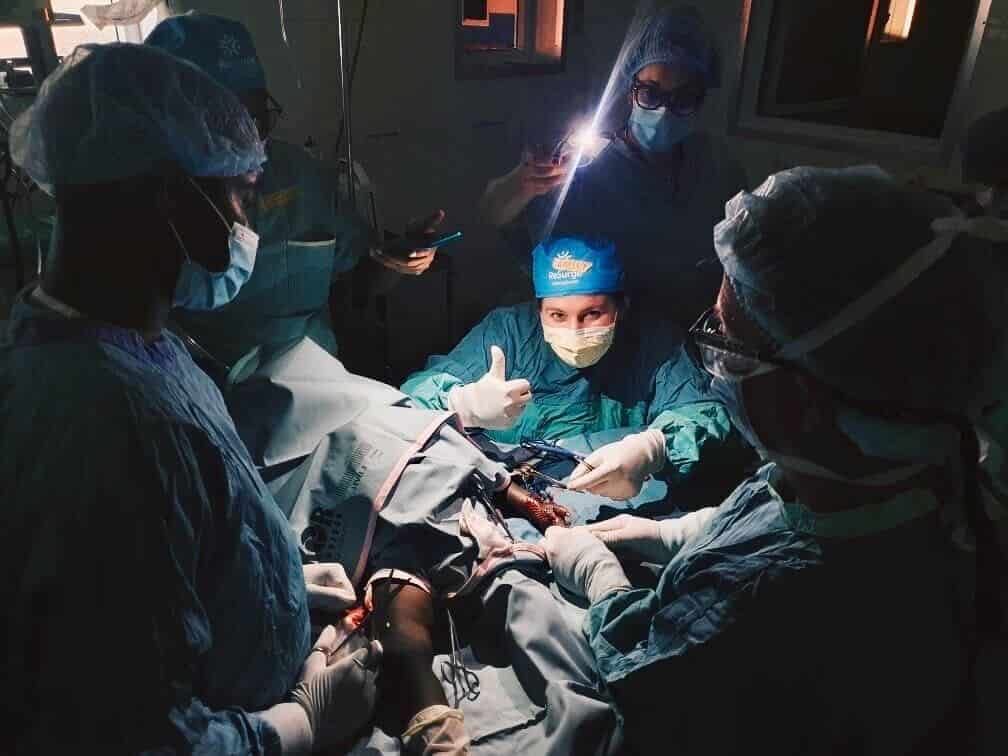
What’s next for you?
I will return to Stanford to continue the latter half of my training over the next three years. I’m grateful that I will still be next door to ReSurge! Hopefully, after that, I’ll either pursue a subspecialty fellowship or enter general plastics practice. I would love to return to ReSurge as I grow in my career – as a mentor or surgeon-trainer.
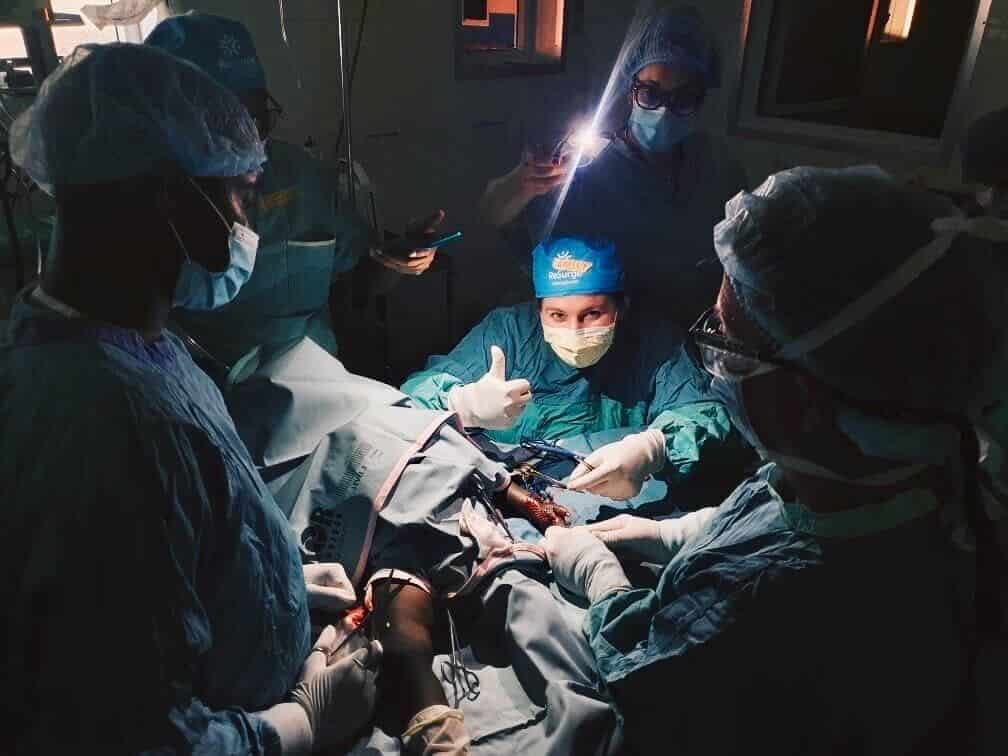
Do you have any additional reflections you’d like to share?
I want to thank the whole ReSurge team for welcoming me into their world for the past year, and all the U.S.-based and global partners I was able to learn from. I will always cherish the memories of this year and hope to take the lessons I’ve learned forward in my career to share with others.

